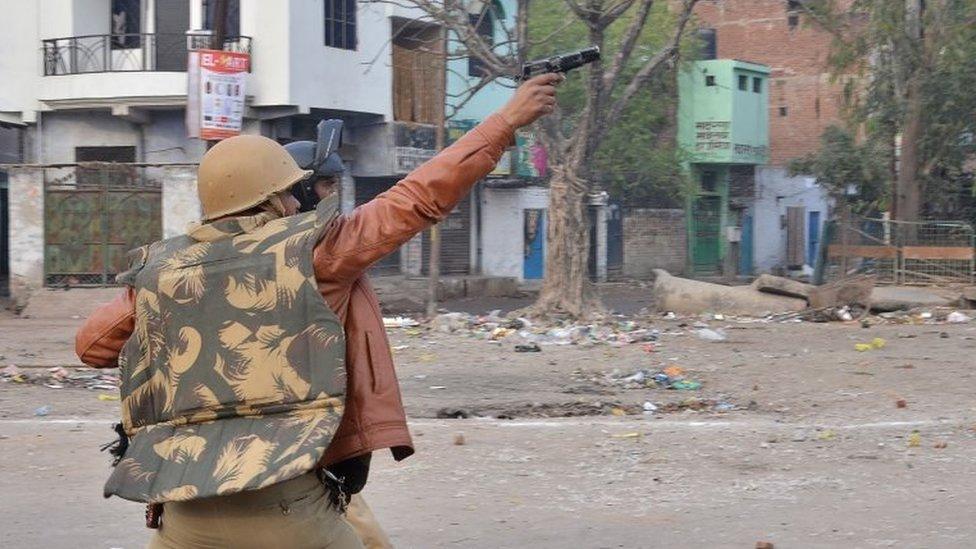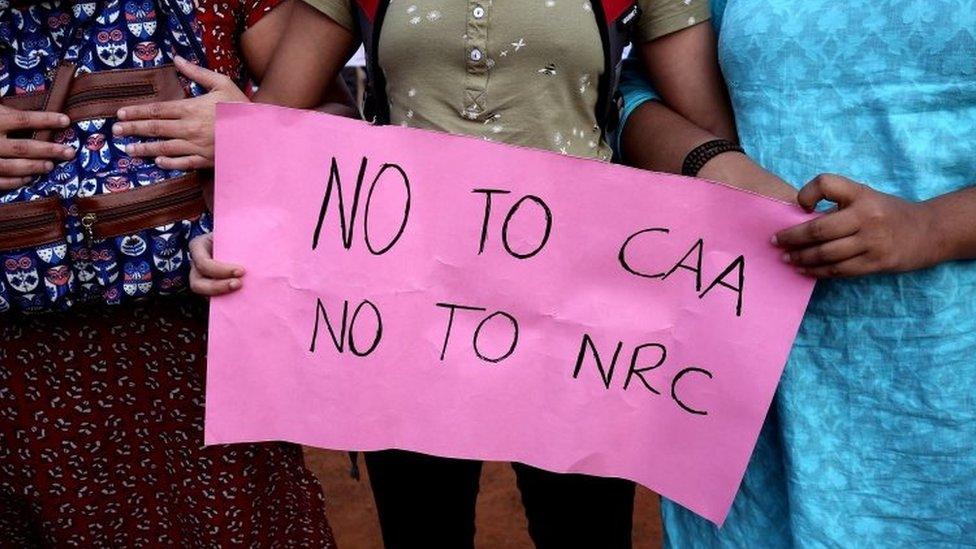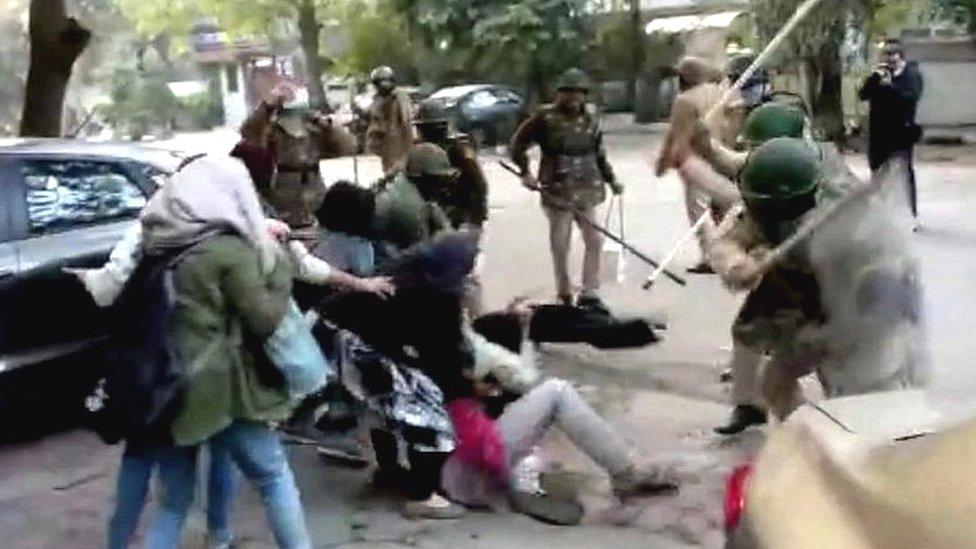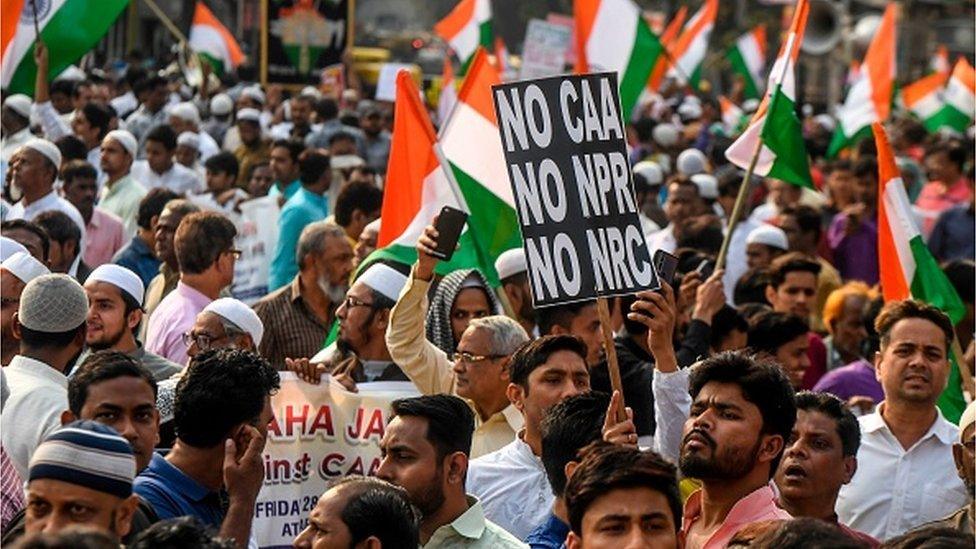India protests: At least six killed in Uttar Pradesh
- Published

Clashes involving stone-throwing and gunfire occurred in a number of places, including in Kanpur (pictured)
At least six people have been killed in northern India during the latest day of protests against the government's new citizenship law, police say.
Uttar Pradesh police chief OP Singh also told the Reuters news agency that 32 others were injured.
At least 13 people are now reported to have died overall in clashes sparked by a controversial government bill, seen by critics as anti-Muslim.
Protesters have continued to take to the streets in spite of police bans.
Local medical and police officials told AFP that at least five of those who had died in districts in Uttar Pradesh on Friday had sustained bullet wounds.
The state's police chief, Mr Singh, denied that any of Friday's deaths were caused by his officers' gunfire.
There was violence reported in at least 10 districts of Uttar Pradesh on Friday, according to local media.
Friday also saw major protests in the capital, Delhi, with thousands gathering outside one of India's oldest mosques, the Jama Masjid.
Anti-citizenship law protests spread across Indian cities
A witness from the AFP news agency said they some saw protesters bleeding from head wounds after clashes in the capital.
A car was set on fire, and water cannon and batons were used by police to disperse protesters, AFP reports.
Officials are continuing to try and suppress the citizenship protests, now in their second week, by using means like shutting down internet access in places.
The latest confirmed deaths come a day after three others were killed and thousands were arrested in violence on Thursday.
What is the controversial law?
Critics fear the new law - known as the Citizenship Amendment Act (CAA) - undermines India's secular constitution.
Passed earlier this month, it offers amnesty to non-Muslim illegal immigrants from Pakistan, Bangladesh and Afghanistan.
The federal government says the law will protect religious minorities fleeing persecution - but the move has drawn criticism from opposition parties and international rights groups.

University students are among those who have been taking to the streets
It is also controversial because it follows a government plan to publish a nationwide register of citizens that it says will identify illegal immigrants - namely, anyone who doesn't have the documents to prove that their ancestors lived in India.
A National Register of Citizens (NRC) - published in the north-eastern state of Assam - saw 1.9 million people effectively made stateless.
The NRC and the Citizenship Amendment Act are closely linked as the latter will protect non-Muslims who are excluded from the register and face the threat of deportation or internment.
Why are people protesting against it?
The law change has sparked a backlash from a range of protesters, including students.
Many Muslim citizens fear that they could be made stateless if they don't have the necessary documents; and critics also say the law is exclusionary and violates the secular principles enshrined in India's constitution.
But Prime Minister Narendra Modi said the law would have "no effect on citizens of India, including Hindus, Muslims, Sikhs, Jains, Christians and Buddhists".
He also blamed the opposition for the protests, accusing them of "spreading lies and rumours" and "instigating violence" and "creating an atmosphere of illusion and falsehood".
Mohammed Tameen says police shot him at close range
- Published20 December 2019
- Published16 December 2019

- Published12 March 2024
